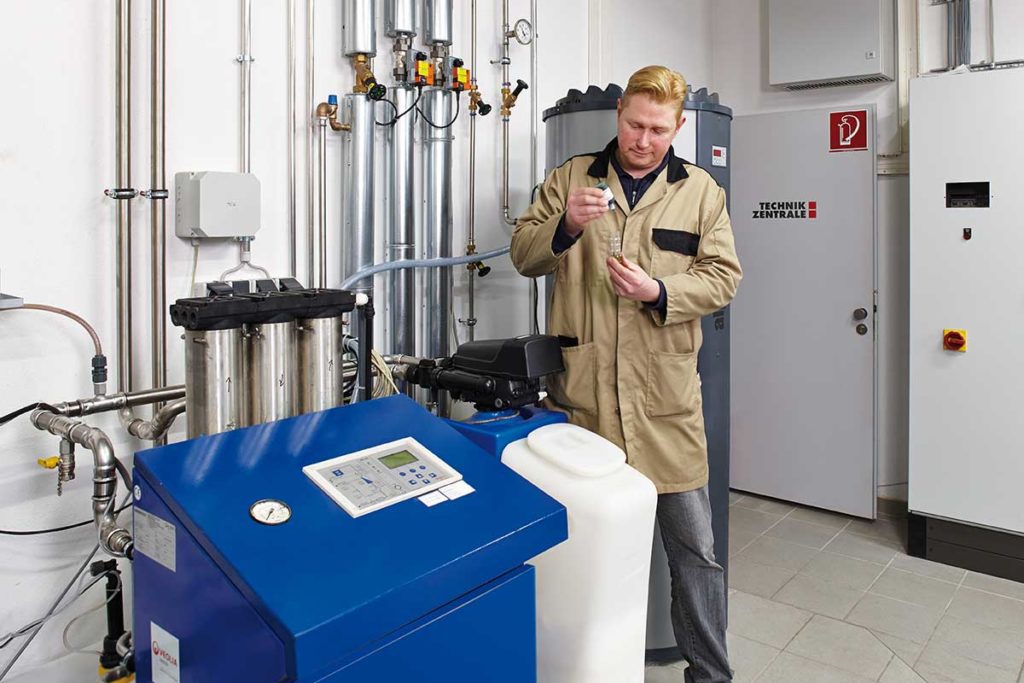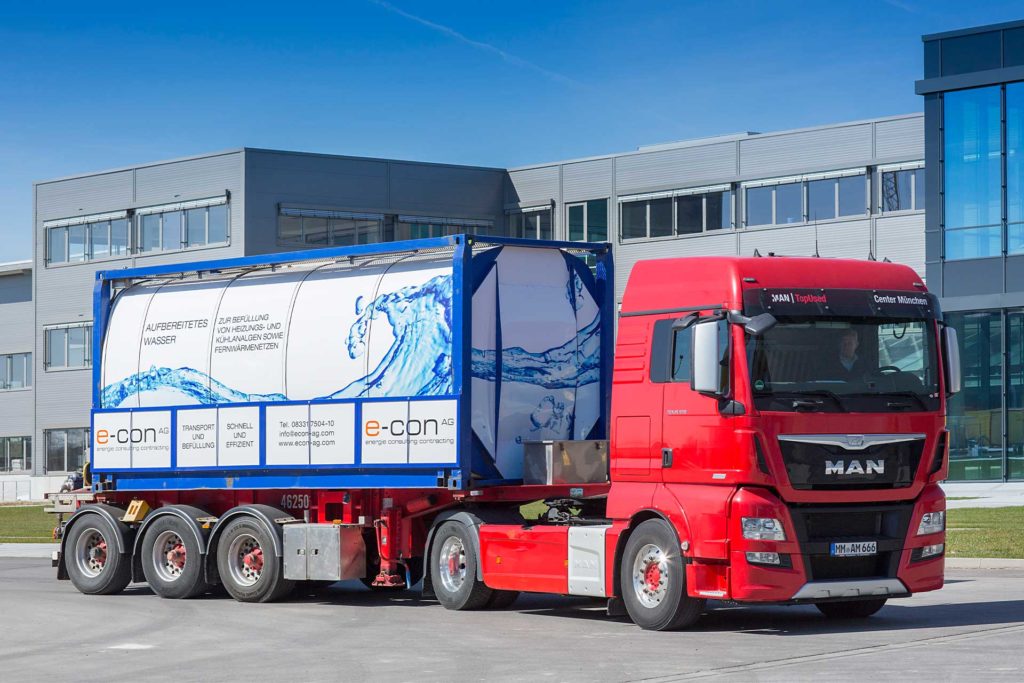Demineralised water
For long-term corrosion protection
The heating and refrigeration systems and district heating grids have to be filled with demineralised water.
If the filling water is not treated accordingly, this can pose a warranty risk.
We fill all our systems with high-quality, standardised and demineralised water in accordance with VDI 2035.
Demineralised water guarantees that systems will be functional and have a long service life. Therefore, (external) water inspections are occurring more and more frequently.
There is no need for you to perform quality control checks on site because we will have already done this for you under standardised conditions.
Demineralised water in accordance with VDI 2035
The ion exchange of dissociated, water-soluble substances in completely purified, oxygenated water (also known as deionised or desalinated water) in accordance with DIN EN12952-12.
Our tanker
Delivering large quantities of demineralised water to you in no time. We can have our distribution partner, e-con AG, deliver you high-quality, demineralised water in a 25 m³ tanker.
We can also fill up third-party systems.




